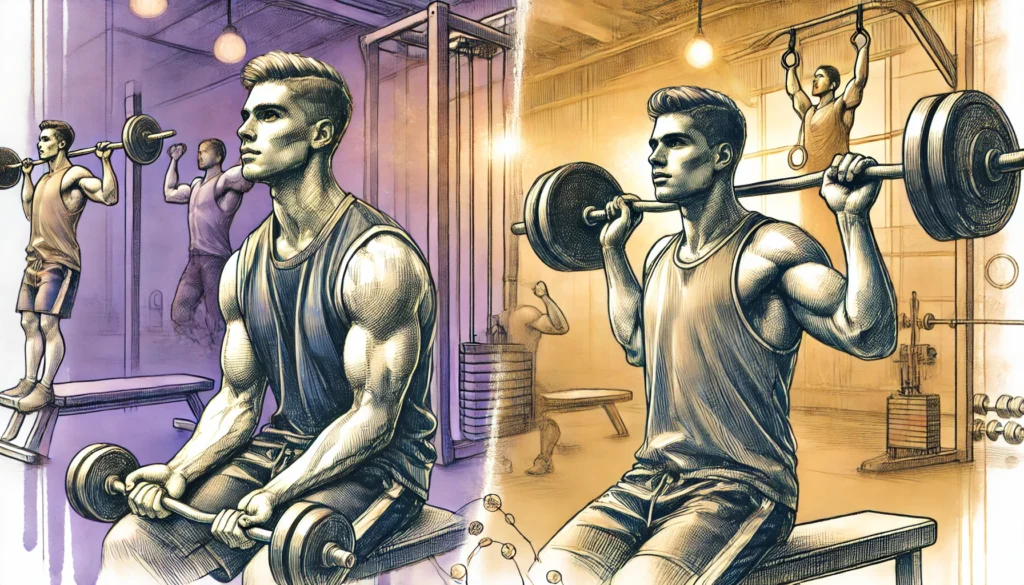The modern world’s obsession with fitness and physical perfection has transformed from a pursuit of health into a societal burden with far-reaching consequences. While the benefits of maintaining physical health are undeniable, the relentless drive toward unrealistic body standards has led to widespread psychological, social, and educational challenges, particularly for adolescents.

Adolescence is a critical phase in a person’s life, marked by self-discovery and identity formation. However, this period is increasingly shaped by societal and media-driven ideals of beauty and fitness, which impose an unhealthy emphasis on external appearance. Social media platforms, in particular, are instrumental in amplifying these pressures. Through carefully curated and edited images, they create a constant barrage of idealized body types, making it nearly impossible for young people to resist the temptation to compare themselves to these unattainable standards.
The comparison often leads to body dissatisfaction, with many adolescents developing an aversion to their natural physiques. In extreme cases, the desire to align with these ideals drives young individuals to resort to invasive procedures such as cosmetic surgeries. These surgeries, marketed as solutions to perceived flaws, are not only physically risky but also reinforce the notion that natural bodies are inherently inadequate. Such beliefs contribute to an increase in mental health issues like anxiety, depression, body dysmorphia, and eating disorders, leaving lasting scars on the mental well-being of vulnerable individuals.
The obsession with fitness also disrupts educational patterns and goal-setting during this formative stage of life. Adolescents often prioritize gym routines, strict diets, and physical metrics over academics and intellectual development. The immense time and energy spent on achieving aesthetic goals detracts from opportunities for skill-building, self-expression, and exploring broader life interests. Unrealistic fitness aspirations frequently lead to cycles of disappointment and frustration, further eroding self-esteem and stalling personal growth.
In India, the challenges posed by this obsession are compounded by a significant gap in regulatory frameworks governing the fitness industry. Many fitness centers and so-called trainers operate without proper qualifications or oversight. These unregulated entities exploit the insecurities of individuals by promoting unattainable goals and offering dubious solutions, all in the name of economic gain. Misleading advertisements and false promises about rapid transformations lure people into purchasing expensive supplements or subscribing to unverified programs, often with harmful consequences for their physical and mental health.
The lack of regulation in the fitness industry has created an environment where unethical practices can thrive. Unqualified trainers may prescribe extreme workout routines or diets without understanding their clients’ individual needs or health conditions, leading to injuries and long-term health complications. The absence of consumer protection laws leaves individuals vulnerable to exploitation, making it clear that the government must step in to establish stringent guidelines for the fitness industry.
Addressing this issue requires a multi-faceted approach that involves education, public awareness, and legal reform. Educational institutions play a crucial role in reshaping attitudes toward fitness and health. Schools and colleges can introduce programs that emphasize the importance of overall well-being rather than aesthetic perfection. These programs should teach adolescents to view health as a combination of mental, emotional, and physical factors, helping them move away from superficial standards.
Parents and educators also have a responsibility to guide adolescents toward self-acceptance and resilience. By encouraging young people to recognize their unique abilities and qualities, they can help reduce the undue emphasis placed on physical appearance. Open conversations about body image, societal pressures, and the dangers of extreme fitness goals can empower adolescents to make healthier choices.

The media and Influencers must also contribute to changing the narrative. Instead of glorifying unrealistic body types, they should promote diverse representations of beauty and emphasize the importance of individual health and happiness. Public figures who speak out against harmful fitness trends and advocate for responsible practices can play a significant role in reshaping public pperceptions
From a legal perspective, India urgently needs to establish robust frameworks to regulate the fitness industry. Certification standards for fitness trainers should be made mandatory, ensuring that only qualified professionals can operate in the field. Fitness centers must be required to disclose clear and accurate information about their services, and misleading advertisements should face strict penalties. Consumer protection laws should be strengthened to safeguard individuals from being duped by false claims or harmful practices.
Moreover, there should be greater emphasis on spreading awareness about the risks associated with extreme fitness measures, including cosmetic surgeries. Public health campaigns can help educate individuals about the importance of setting realistic fitness goals and the dangers of prioritizing aesthetics over well-being.
The obsession with fitness is no longer a harmless trend it has become a pressing societal issue that deeply affects mental health, disrupts educational aspirations, and enables exploitative practices in an unregulated industry. To address these challenges, collective action is needed. Education systems, families, media, and policymakers must work together to create an environment where individuals, especially adolescents, can pursue health and fitness without compromising their mental well-being or falling prey to unethical practices.
By introducing balanced health education, enforcing strict regulations in the fitness industry, and changing societal attitudes, we can help individuals build a healthier relationship with their bodies and focus on overall well-being rather than chasing unrealistic ideals. This approach not only safeguards physical and mental health but also allows people to lead lives rooted in self-worth and personal growth rather than external validation.
This transformation is essential for ensuring that fitness, once a symbol of empowerment and vitality, does not become a source of distress and exploitation. It is time to move beyond the narrow confines of perfection and embrace a more inclusive, ethical, and holistic understanding of health and fitness.
